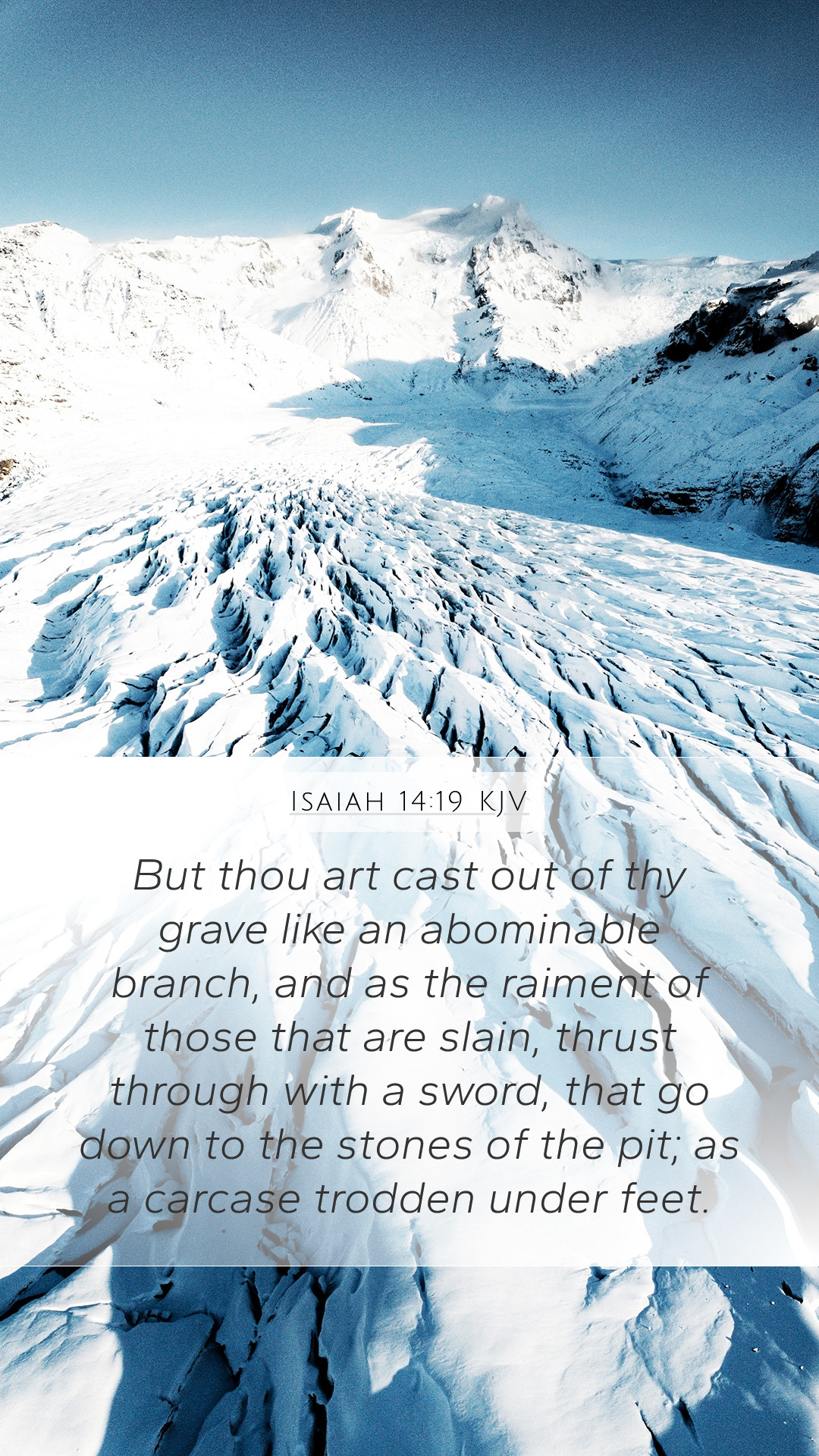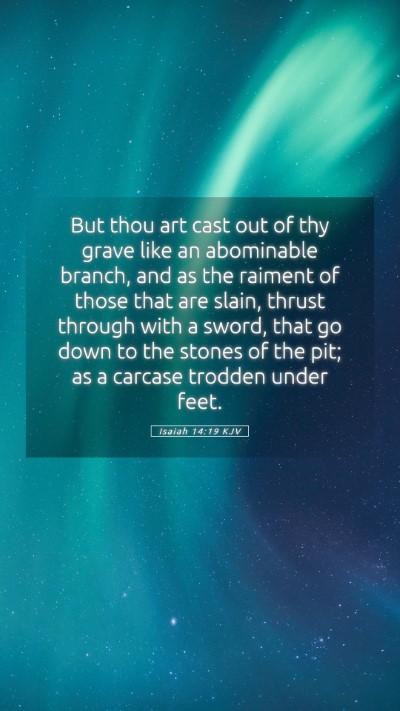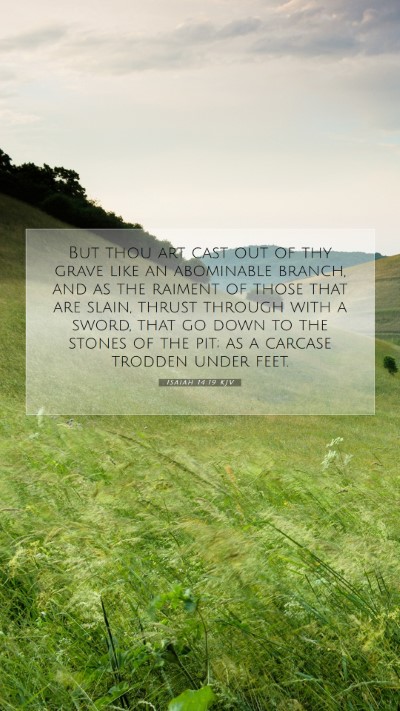Understanding Isaiah 14:19
Isaiah 14:19 is a poignant verse that provides profound insights into the themes of destruction, pride, and the downfall of the mighty. This verse reads:
"But you are cast out of your grave, like an abominable branch, like the garments of those who are slain, thrust through with a sword, who go down to the stones of the pit, like a corpse trodden underfoot."
Contextual Analysis
In order to fully grasp the meaning of this verse, it is essential to consider its historical and literary context. This passage is a part of a larger prophetic narrative addressing the fall of Babylon, symbolizing both the literal nation and the spiritual pride that accompanies it. The message serves to comfort Israel by illustrating God's ultimate judgment upon those who oppose Him.
Bible Verse Meanings
Understanding Isaiah 14:19 involves careful exegesis and attention to the implications of the language used. Notably:
- Cast Out of Your Grave: This phrase signifies a total severance from dignity and honor. The grave, a symbol of rest and honor, becomes a place of shame for those who are proud.
- Like an Abominable Branch: This imagery indicates that the once-great have become utterly despicable and worthless in God’s sight.
- Trodden Underfoot: The metaphor emphasizes humiliation and the thoroughness of God's judgment against pride and arrogance.
Bible Verse Interpretations
Various commentaries provide further insights into this verse:
- Matthew Henry: He emphasizes that the decay of pride is a warning against seeking glory apart from God. The abominable branch signifies how the greatness once attributed to the powerful is transformed into disdain.
- Albert Barnes: Barnes points out that the imagery underscores the utter defeat of those who oppose God, highlighting the transient nature of human pride and power.
- Adam Clarke: Clarke delves into the historical significance of the verse, relating it to the Babylonian king's arrogance and its ultimate destruction, linking it to broader themes of divine justice.
Applying the Verse to Daily Life
The implications of Isaiah 14:19 extend beyond historical context; they offer contemporary lessons about humility, the nature of power, and divine justice. Reflecting on our own lives, we can consider:
- The danger of pride and the importance of maintaining humility.
- Recognizing the sovereignty of God over all nations and leaders.
- Understanding that earthly power is temporary and should be exercised with responsibility and reverence.
Cross-References
This verse resonates with several other Biblical passages, enhancing our understanding through connection:
- Isaiah 14:12-15 - Discusses the fall of the "morning star," which relates to pride that leads to downfall.
- Psalm 37:35-36 - Illustrates the fate of the wicked and contrasts it with the fate of the righteous.
- Ezekiel 28:16-17 - Addresses the pride of the king of Tyre, another figurative representation of downfall.
Conclusion
Isaiah 14:19 serves as a sobering reminder of the consequences of pride and rebellion against God. Through thoughtful Bible study resources, scripture analysis, and reflection, one can appreciate the depth of this verse and its implications for faith and practice. It encourages us to seek a richer understanding of scripture and its application in our daily lives.
Further Study
For those interested in deeper engagement with this verse and related themes, consider joining Bible study groups or utilizing online Bible study tools. Exploring comparative texts and participating in discussions can foster a greater appreciation for the Bible's teachings and enhance one's understanding of scripture.


